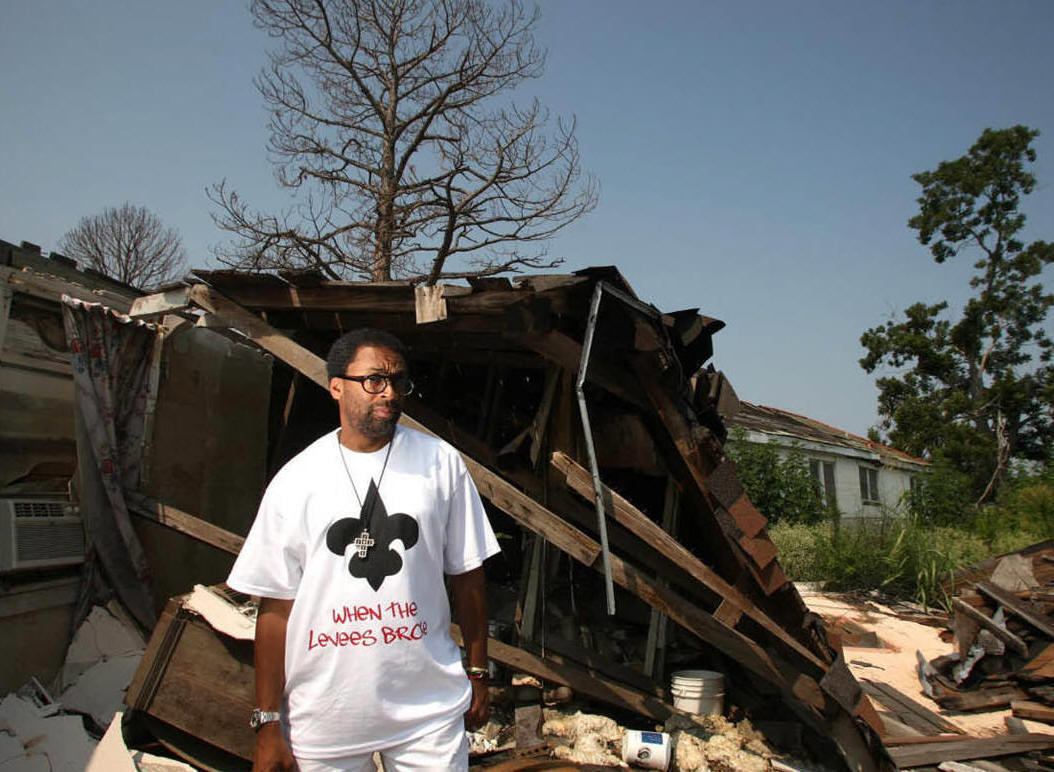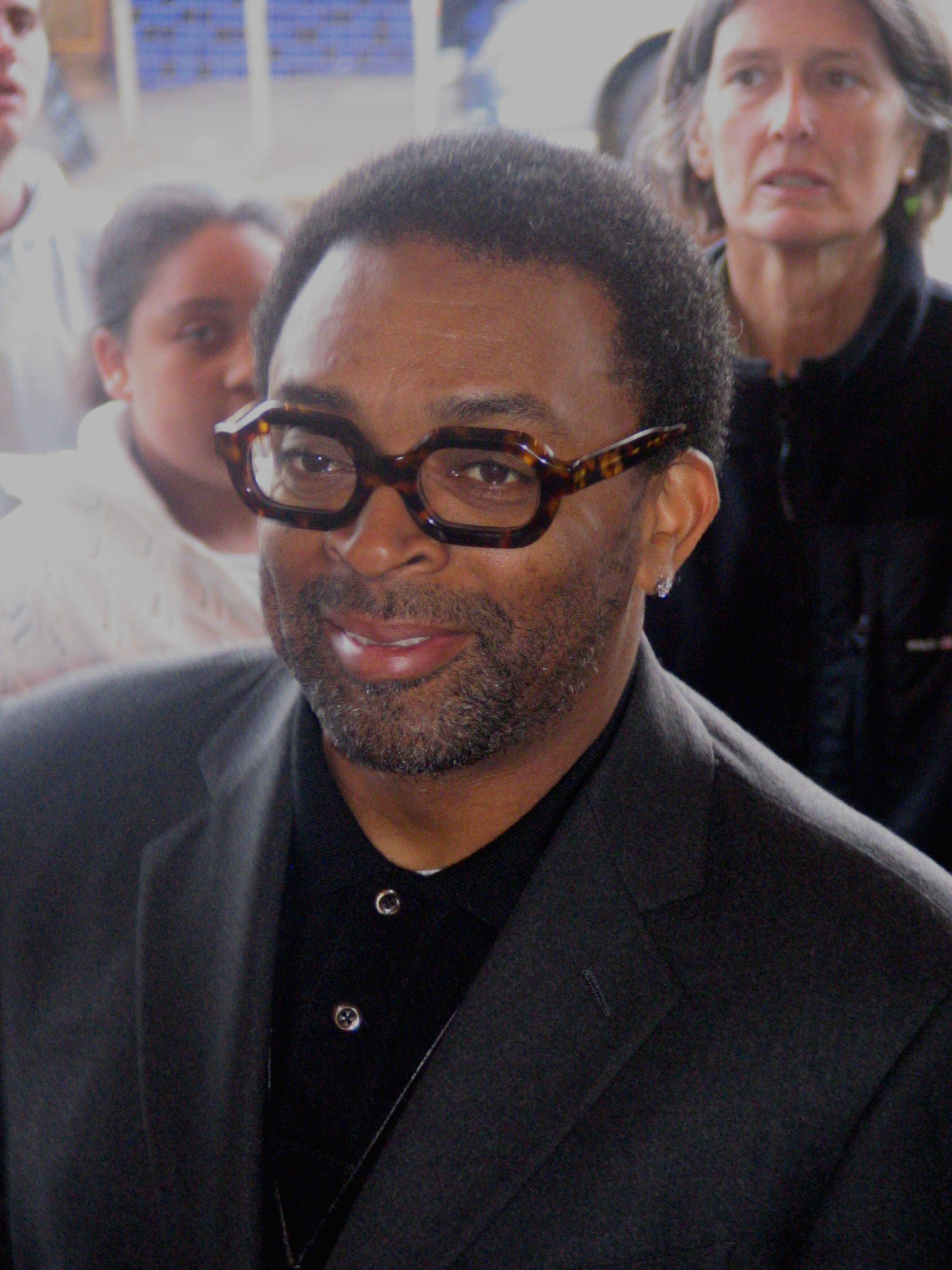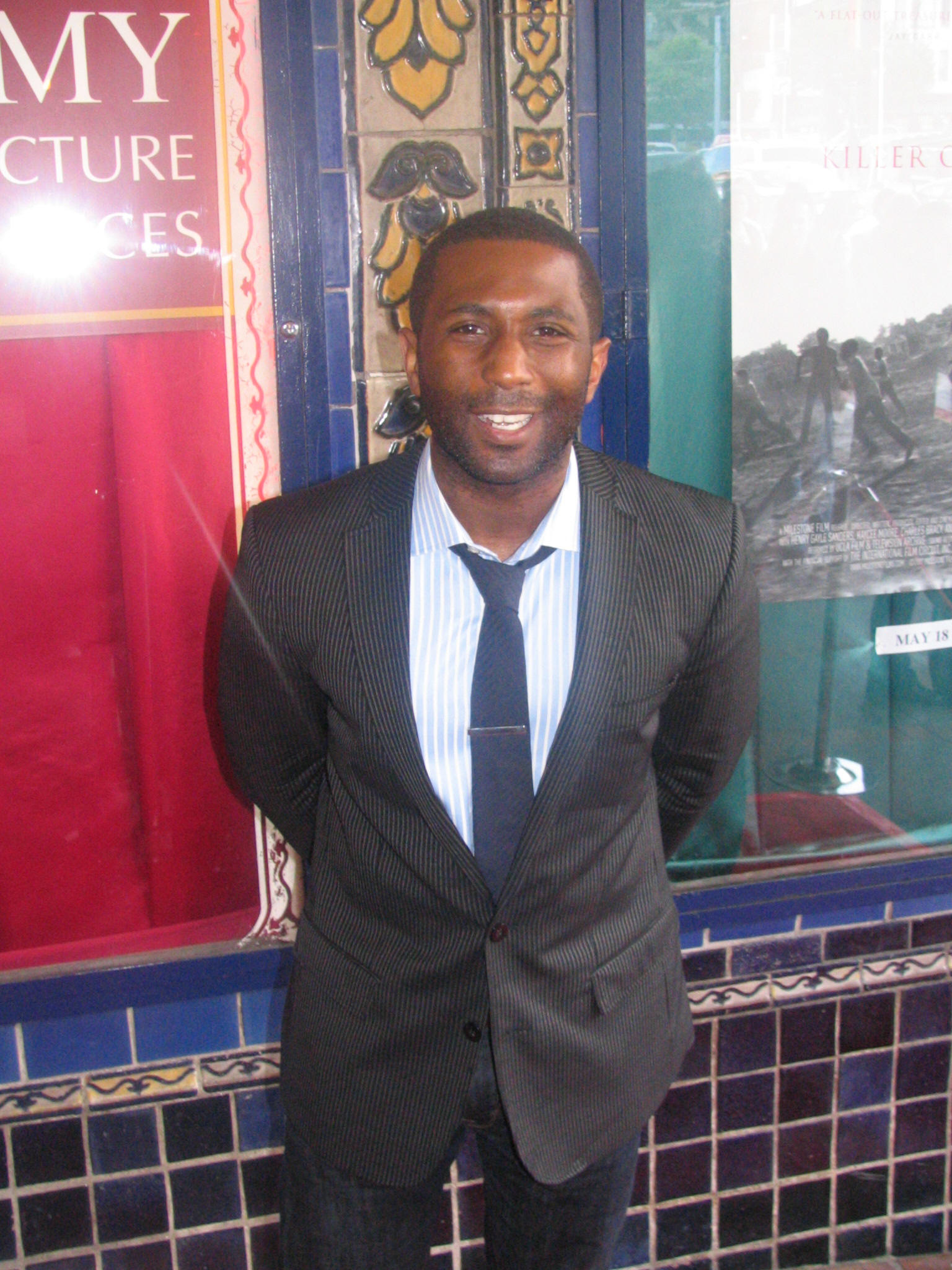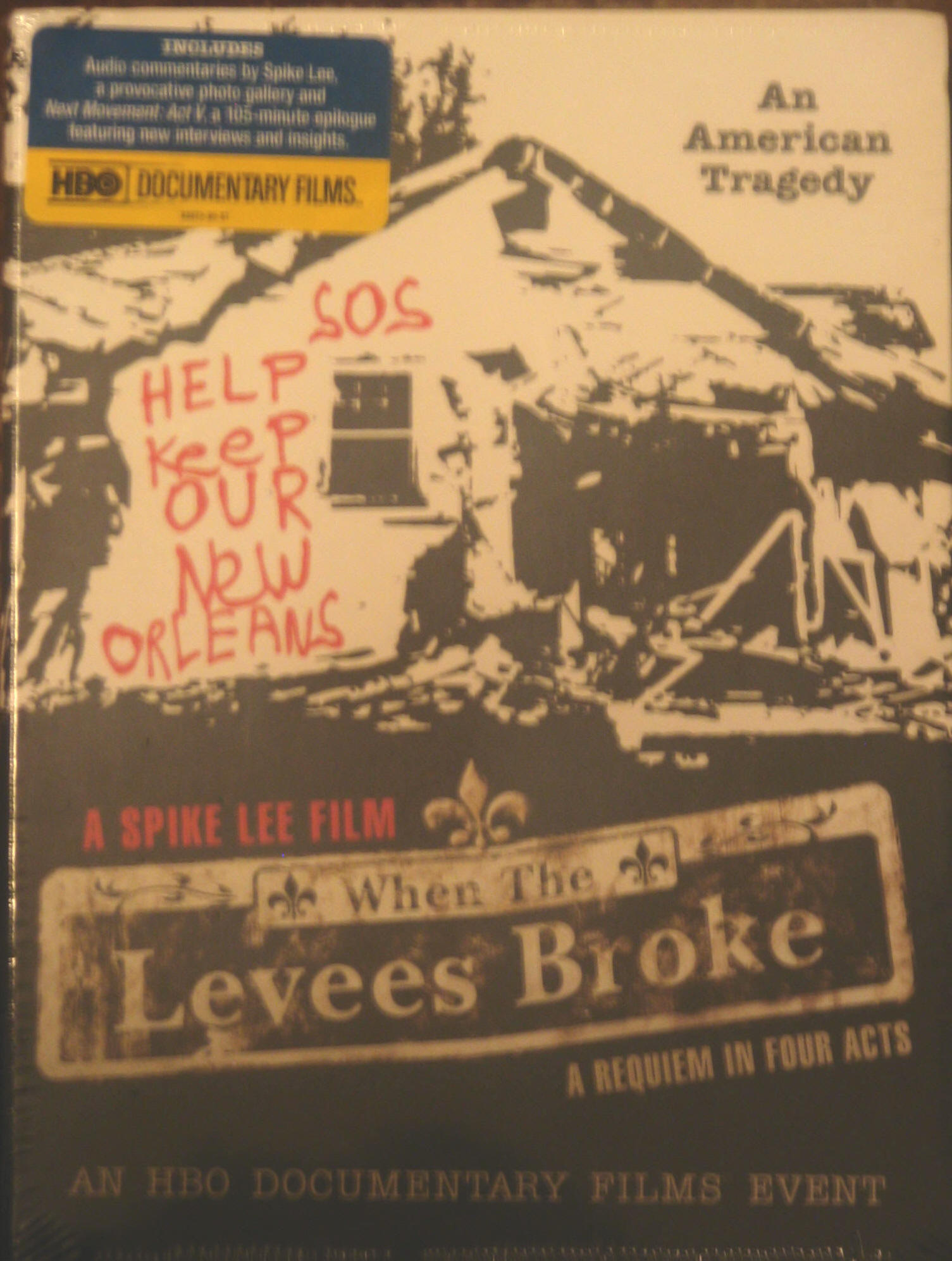






The filmmaker on location in New Orleans in 2005 for his
epic documentary on the U.S. government's indifferent and wanting response to
Hurricane Katrina.
(Photo: HBO)
"What healing are you talking about?" Spike Lee asked a
reporter on the red carpet who had just asked him how his four-hour documentary
had helped heal the residents of Hurricane Katrina-ravaged New Orleans.
The reporter had perhaps made the mistake of referencing the director's profound
HBO documentary "When The Levees Broke: A Requiem In Four Acts", which showed on
the pay television channel last summer and fall in the United States and is now
on DVD in North America, to gauge whether it had contributed to easing the pain
of the people suffering on the Gulf Coast, and Mr. Lee was apparently
none-too-pleased about it. "I get calls every day. They aren't
healing. They need help. No healing."
Acts II and III of Mr. Lee's extraordinary documentary were shown at the Castro
Theater tonight as part of the 50th San Francisco International Film Festival,
and were alternatively met with howls of laughter, anger and disgust by the
audience, 85% of whom had stayed behind to watch the middle two hours of the
film following an hour of conversation with Wesley Morris of the Boston Globe
as part of the Festival's "An Evening With Spike Lee." On more than one
occasion tonight, Mr. Morris' interview skills were suspect and Mr. Lee, not one
to mix his metaphors, let him know about some of his errors. For example,
when Morris said that the director had "recently become a father," Mr. Lee
interrupted, "but that's been for 12 years now. That's no newsflash," as
the audience erupted in laughter.
Despite some moments when the prolific New York City filmmaker challenged both
the interviewer and some audience questioners (many of whom asked questions far
better and more articulately than Mr. Morris), Mr. Lee, who is being honored
with the San Francisco Film Society Directing Award on Thursday, displayed humor
aplenty and ardent passion and concern for the state of the Union with careful
and deliberate speech, a trademark deadpan stare, pauses and an occasional
despairing bow of the head. A look, a silence, or a one or two-word answer
to some of Mr. Morris' inquiries merited laughter from the audience.
But there was no laughing matter when discussing the documentary on Hurricane
Katrina and its devastating effects, coupled with governmental neglect of its
own citizens.
"Make no mistake. Please do not leave this theater thinking everything is
okay in New Orleans. It's not."
When asked about his career and his ability to make
films almost annually, he said, "from the very beginning in film school I wanted
to build up a body of work, and I've just been very fortunate that I've gotten
the opportunity to go from film to film."
The San Francisco Film Society also went from film to film in Executive Director
Graham Leggat's pre-introduction of the illustrious filmmaker, with clips of
some Spike Lee's best-known films: "She's Gotta Have It", "Do The Right Thing",
"Mo' Better Blues", "Jungle Fever", "Malcolm X", "Clockers", "4 Little Girls",
"Summer Of Sam", "25th Hour" and "Inside Man".

Spike Lee arriving on the red carpet on Wednesday, May 2
at the Castro Theater in San Francisco. (Photo: Omar P.L. Moore)
The director talked about Iraq and referencing the
fourth anniversary of May 1, 2003, of the moment president George W. Bush stood
beneath a prominent banner containing two words: mission accomplished.
Spike Lee had just one word in response. "Sheeeeeeeit!"
The audience again laughed, and Mr. Lee afforded himself a knowing smile.
In using the phrase he used, he borrowed from the actor Isiah Whitlock, who has
appeared in at least two of Mr. Lee's films playing a detective, including "25th
Hour". But the seriousness of the actions and the resulting ongoing
conflict in Iraq was brought sharply back into focus in an instant.
"You know, how many more Americans have to come back in body bags for this thing
to end?"
Mr. Lee also was quick to note one of the candidates running for U.S. president
next year. "Giuliani ain't the answer either. He'd be worse."
Everything connects to something, and while the evening was ostensibly about the
director's remarkable resume of work over the past 21 years, Spike Lee did not
hesitate to connect the events in Iraq to the events in New Orleans and cities
across the still-ravaged Gulf Coast region of the U.S. "Halliburton,
they've got contracts in the Gulf Region too -- no-bid contracts . . . the
company that got the no-bid handout, worked on the levees -- turns out stuff
doesn't work, millions and millions of dollars -- turns out that Jeb Bush is the
co-owner of the company."
Some audience members groaned in anguish.
"They're all in cahoots," the director said, "and they're making money hand over
fist."

Boston Globe film critic Wesley Morris striking a
pose on the red carpet on May 2 outside the Castro Theater in San Francisco,
where he interviewed Spike Lee.
(Photo: Omar P.L. Moore)
Mr. Lee revealed that his four-hour documentary "When The Levees Broke", which
won three awards at last year's Venice International Film Festival, was "only
supposed to be two hours", but as he and supervising editor Sam Pollard kept
looking at what they shot during the course of their eight trips to New Orleans,
they realized that two hours didn't begin to tell the story. They went
back to HBO and asked for more money for two more hours of film. Even
after that, the director observed, it was still insufficient. (Mr. Lee
noted that there is an additional fifth hour on the DVD edition of the
documentary.)
But obviously for the residents of the Gulf Coast, and for the director the
story is far from complete. "We're gonna do a follow-up on 'When The
Levees Broke'," Lee said, "and we're gonna stay with this 'till something
happens, good or bad."
Throughout the night, Mr. Lee addressed numerous topics, including Don Imus'
statement last month about the members of the Rutgers Womens' basketball team,
about the impact of his 2000 film "Bamboozled", to which he answered one young
lady who had said the film had deeply impacted her query with: "so have you
stopped doing music videos?" The lady quickly responded that she never had
and never would.
So much transpired tonight, and Mr. Lee in some ways was the grand architect of
it all.
Next week: the complete transcript of the evening's event.
Copyright The Popcorn Reel. PopcornReel.com. 2007. All Rights
Reserved.

The DVD cover of "When The Levees Broke: A Requiem In Four
Acts", the four-hour epic documentary directed by filmmaker Spike Lee.







